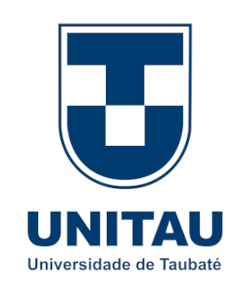COMPREHENSIVE EDUCATION FROM THE PERSPECTIVES OF DEWEY, DELORS AND THE NATIONAL COMMON CURRICULAR BASE: a path to full learning
Artigo revisado pelo corpo de revisores da FATEC SJC em parceria com a Faculdade Cristã da Cidade de SJC.
DOI:
https://doi.org/10.69609/1516-2893.2025.v31.n1.a4011Keywords:
BNCC, Educação integral, Formação humana, Pilares metodológicos de Dewey, Relatório de DelorsAbstract
Integral human development has been widely advocated in the normative documents of Brazilian education, such as the National Common Curricular Base (BNCC). However, its implementation in daily pedagogical practices still presents challenges, especially in the face of technical and reductionist tendencies. This article aims to analyze the contributions of Dewey's thinking and Delors' reports, articulating references to the concept of comprehensive development in light of the BNCC. This research is based on a qualitative approach, of a theoretical nature, based on a bibliographic review of scientific literature published on the CAPES platforms and the SCIELO journal database, in addition to documents that standardize and monitor the quality of teaching. The study identified in the pillars of education proposed by Delors and in Dewey's conception of formative experience, consistent foundations for an educational practice that values the human being in his/her entirety. The analysis indicates that the BNCC, although open to comprehensive development through its general competencies, demands critical mediations so that its guidelines are effectively translated into meaningful educational experiences. It is concluded that the articulation between the pillars of education, Dewey's thinking and the concepts of comprehensive education contribute to redefining the school curriculum and promoting an education that not only prepares students based on summative assessment but also provides training for the market and social experience.
Downloads
Metrics
References
BENEVIDES, M. P.; XAVIER, K. R. S. L.; et al. (2024) Sign talk assistive technology: real-time recognition of the libras typical alphabet using artificial intelligence. RGSA, v. 18, n. 12, p. e010610, 2024. DOI: https://doi.org/10.24857/rgsa.v18n12-214
BITTENCOURT, J. Educação Integral no contexto da BNCC. In: Revista e-Curriculum, São Paulo, v.17, n.4, p. 1759-1780 out./dez. 2019. Programa de Pós-graduação Educação: Currículo, PUC/SP
BRASIL. Estatuto da Criança e do Adolescente. Lei nº 8.069/1990. Diário Oficial da União: Brasília, DF, 1990. Disponível em: https://www.planalto.gov.br/ccivil_03/leis/l8069.htm
BRASIL. Base Nacional Comum Curricular. Brasília, DF: MEC, 2018. Disponível em: chrome-extension://efaidnbmnnnibpcajpcglclefindmkaj/https://www.gov.br/mec/pt-br/escola-em-tempo-integral/BNCC_EI_EF_110518_versaofinal.pdf Acesso 01jun2025
BRETTAS, A. C. F et al. Educação integral e emancipação humana: analises críticas das legislações brasileiras e perspectivas do pensamento educacional. Cadernos da Fucamp, v. 40, p. 141 – 164, 2025.
CAVALIERE, ANA MARIA VILLELA. Educação integral: uma nova identidade para a escola brasileira. In: Educ. Soc., Campinas, vol. 23, n. 81, p. 247-270, dez. 2002.
COSTA, J. C. L.; SANTOS, D. F. A.; OLIVEIRA, M. R. de; MOURA, R. A. 2025. Aprendizagem com solução de problemas reais para aprimoramento discente na injunção socioprofissional. CLCS, [S. l.], v.18, n. 2, p. e15288, 2025. DOI: 10.55905/revconv.18n.2-100.
DELORS, JACQUES. Educação: um tesouro a descobrir. 2. ed. São Paulo: Cortez; Brasília, DF: UNESCO, 2010.
MINAYO, MARIA CECÍLIA DE SOUZA. Pesquisa Social: teoria, método e criatividade. 21ª. Ed. Vozes. Petrópolis, Rio de Janeiro, 2002.
MOURA, J. L.; MOURA, R. A. (2019). Interação humano-máquina no sistema produtivo da indústria 4.0 visando aumentar a produtividade e reduzir lesões por esforços repetitivos. Fatec São José Campos. DOI: https://doi.org/10.37619/issn2447-5378.v1i6.213.217-227
MOURA, R. A.; SANTOS, D. A., GOUSSAIN, B. S., OLIVEIRA, M. R.; SILVA, M. B. (2024). Design of Experiments (Doe) for non-specialists in statistics in food industry: trials of popcorn. RGSA, 18(10). https://doi.org/10.24857/rgsa.v18n10-229
MOURA, R., MARQUES, D., COSTA, J., & SILVA, M. (2021). A urbanidade da higiene ocupacional na era digital e social da antecipação e prevenção. 2021. Sodebras 16(184), 29-33. DOI: https://doi.org/10.29367/issn.1809-3957.16.2021.184.29
PLACIDES, D.; COSTA, C. E. John Dewey e a aprendizagem como experiência. In: Revista Apotheke, v. 7, n.2, p. 129-145, outubro de 2021.
SANTOS, S. G. A.; LINS, C. P. Educação integral: aspectos sócio-históricos e contemporâneos. Anais VIII EPEPE... Campina Grande: Realize Editora, 2022.
SILVA, E. A.; CAMARGO, A. A.; SILVA, M. B.; MOURA, R. A. (2024). Neuroergonomia e tecnologias imersivas para alcançar um envelhecimento saudável ... Revista Exatas. V.30. UNITAU. DOI: https://doi.org/10.69609/1516-2893.2024.v30.n2.a3916
TAVARES, Maria de Fátima. Educação Integral: Princípios e Valores. In: Revista Educação & Sociedade, Campinas, v. 30, n. 107, p. 1151-1172, 2009.
Downloads
Published
How to Cite
Issue
Section
License
Copyright (c) 2025 Fernanda Andrade Camargo Figueiredo, Eliane Penha Mergulhão Dias

This work is licensed under a Creative Commons Attribution-NonCommercial-NoDerivatives 4.0 International License.
A submissão de originais para este periódico implica na transferência, pelos autores, dos direitos de publicação impressa e digital. Os direitos autorais para os artigos publicados são do autor, com direitos do periódico sobre a primeira publicação. Os autores somente poderão utilizar os mesmos resultados em outras publicações indicando claramente este periódico como o meio da publicação original.




